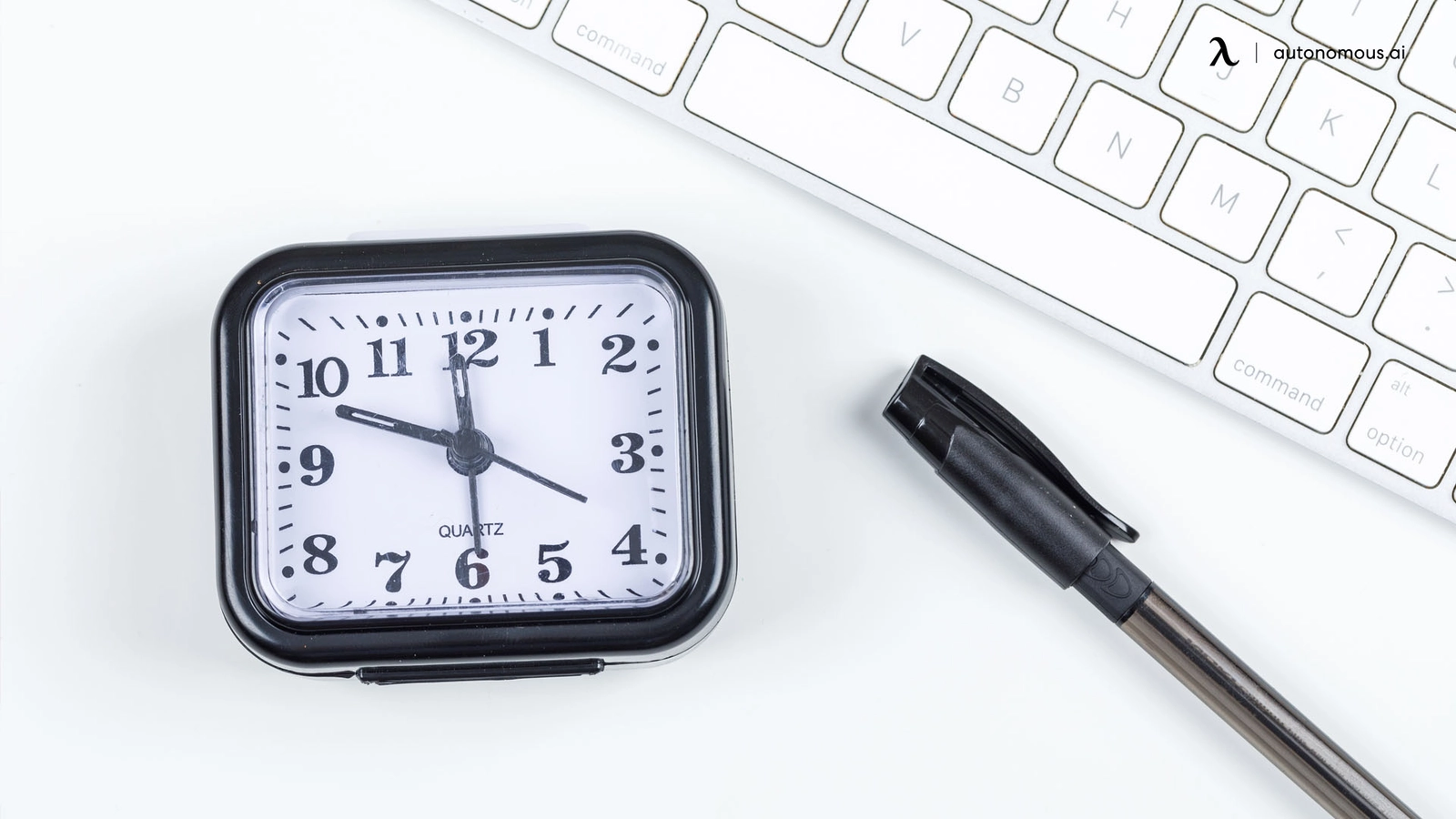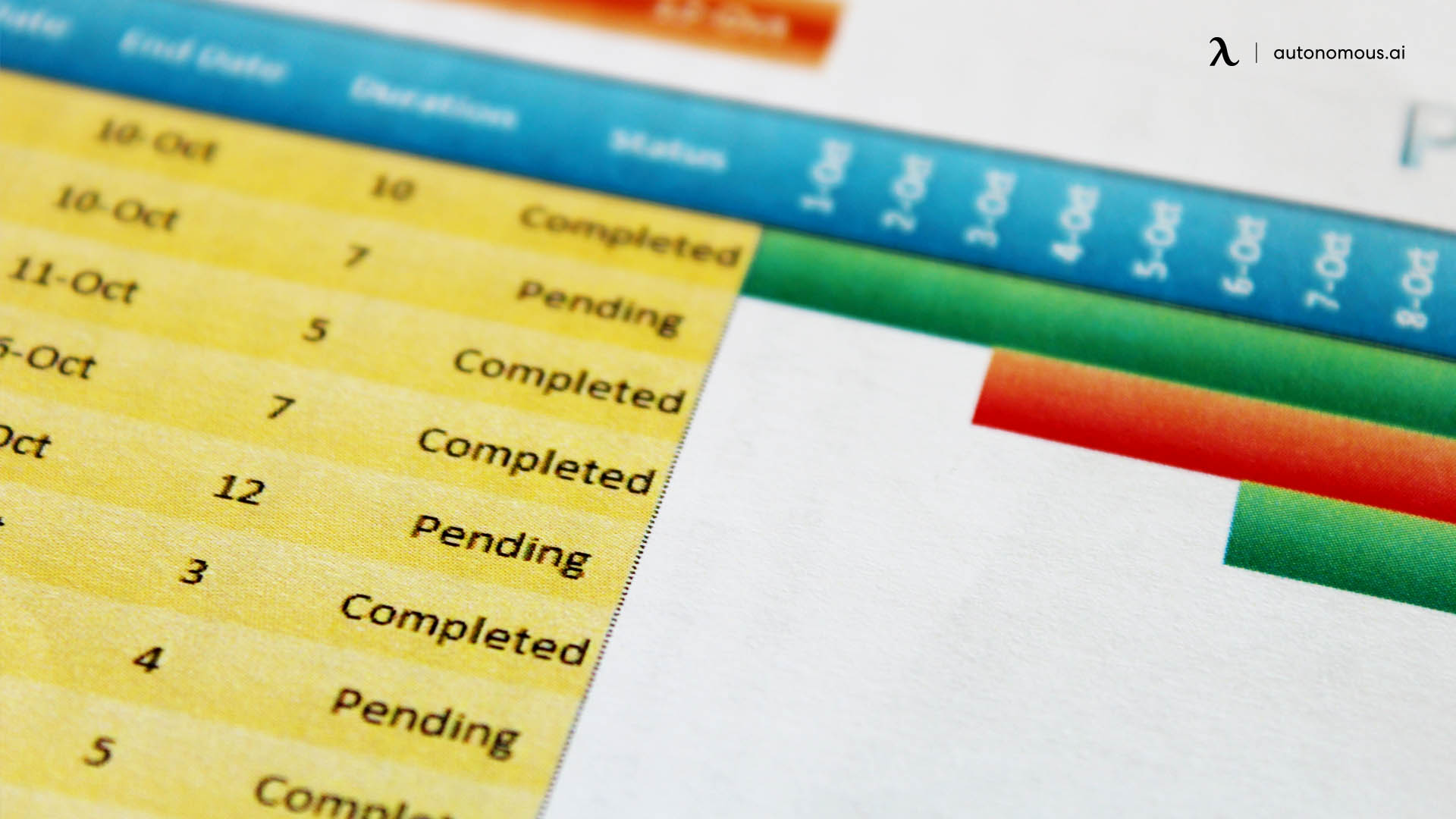10 Time Management Best Practices of Productive People
One of the keys to being more productive is applying some time management best practices. Everyone has the same amount of time available per day, so it’s up to you to make the most of it. You can manage how you spend your time and take control of your actions to eliminate many distractions.
However, if you just got into time management, figuring out good practices can be challenging. There are so many numerous tips, techniques, and suggestions available online that it can be overwhelming. Here we provide you with 10 of the best time management methods that productive people apply in their daily lives to help you avoid sorting through them and know how to practice time management as the best.
1. Do a Time Audit
The first step of managing your time is figuring out where it goes. With a time audit, you can keep track of your actions throughout the day. It’s better to record it over several days or even a whole week if you want to understand better how you manage your time. You might realize that you don’t spend only half an hour responding to emails, but maybe an entire hour.
There isn’t a wrong way to record your daily activities. You can write everything down on paper, or you can use time management apps. Some useful apps for your phone that allow you to track time are aTimeLogger and Toggl. With most time management apps, you only need to spend a few minutes to figure out where your time went.
2. Set a Time Limit for Every Task
An effective time management technique is limiting the time you dedicate to each task you do. It can keep you concentrated on the job, preventing you from getting distracted. For example, you can try to limit the time you check your email to under 15 minutes or the time to do a small task to under 30 minutes. It helps you to have time management best practices.
When you limit your time, you set an expectation on yourself to complete the task before it’s due. It provides a singular focus and may instill a bit of discipline if you manage to stick with it until you finish.
3. Schedule Ahead of Time
A typical time management mistake is starting a day without a plan. It can prevent you from properly focusing on what you need to do, making you consume more time on what would generally be trivial tasks. If you plan a work schedule ahead of time, you can reduce your idle time and maintain productivity throughout the day. It’s one of the best time management methods you can employ.
Try to plan your next day before you leave your workplace, or make it a routine to write down the most critical tasks you need to complete during the morning.
4. Complete Your Most Important Tasks First
Dedicating your morning to complete the most important tasks you have is key to managing your time productively. There are several reasons why this is among the most effective time management best practices. Try to identify every critical or urgent task you have in the morning and start working before you begin to feel drained.
Getting these out of the way means you had a productive workday. You can use that momentum or feeling of accomplishment to finish the rest of the tasks you had.
5. Delegate or Outsource
Performing these effective time management techniques can be tricky, as some people find it hard to leave their work to someone else. Others simply don’t have the time to train or instruct people to complete some tasks.
However, delegating or outsourcing can save you a significant amount of time while reducing your workload. It also leaves you with some valuable time that you may spend on essential tasks. You can hand over some responsibilities to capable team members or hire a qualified freelancer.
6. Learn to Say No
Making several time commitments can be beneficial on some occasions. It may provide you with experience in handling various tasks at once or teach you how to manage your time. However, you have to remember that having too many responsibilities may backfire.
Learning to refuse can prove to be an effective time management technique. If you spread your time too thin, you may have issues concentrating on the most important task at hand. People can only handle so much, and if you already have a full plate, it’s essential to let your colleagues know you can’t help them at the moment.
7. Leave Buffer-time Between Tasks
Giving yourself some downtime between tasks or meetings is an essential time management guideline and time management best practices to follow. Rushing from task to task is challenging, and it also makes it hard to remain productive and motivated. It doesn’t let you take a minute to clear your mind or recharge for a bit.
With some downtime, you can take a walk for fresh air, do some stretching exercises, or rest your eyes for a bit before you continue working.
8. Opt for Single-tasking
Even if doing multiple things at a time feels like a good way to get your tasks done quickly, it’s often detrimental to productivity. Multitasking makes you shift your attention from one thing to the other constantly. If you have to regain your focus every time you switch tasks, you can lose plenty of time.
An effective time management technique is opting for doing a single task at a time. If you focus on a single work task, you can complete it much faster and improve your efficiency.
9. Don’t Waste Time Waiting
It is one of time management best practices you should notice. Many people have plenty of idle time throughout the day. You can use the 10 minutes you spend commuting, standing in a line, or just waiting on doing any other practical activity. Reading a book, watching an educational video, or listening to a podcast are some examples of what you can do during your downtime.
10. Invest in Your Workspace
Although it isn’t a time management method, investing in your workspace can save you some time that you may spend on other vital tasks. If you purchase ergonomic office furniture, you can improve your well-being and raise your productivity and motivation. Some excellent options are office standing desks and office ergonomic chairs.
Subscribe for a 10% discount on your first order.
Sign up for our weekly update and be the first to know about our specials & promotions.
Spread the word








.jpg)


